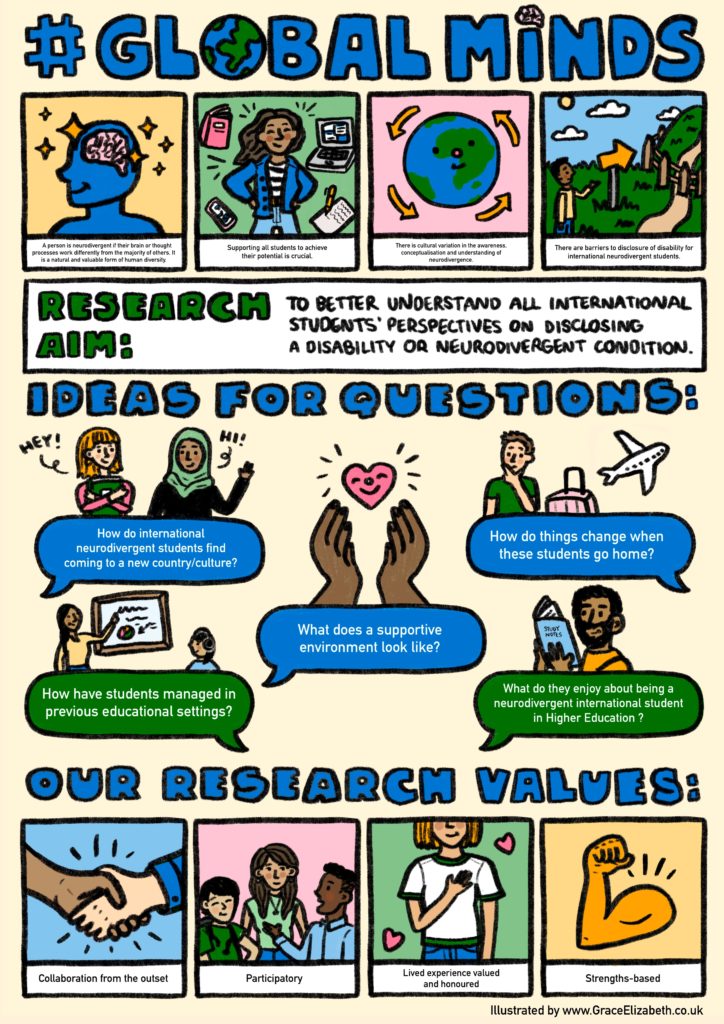The study aims to better understand international students’ perspectives on disclosing a disability or neurodivergent condition and experiences of support offered to disabled and neurodivergent students both before and during their time at university.
We will conduct this project across several UK Universities to reach a broader range of students and ascertain differences between different student demographics and institutions.

There is cultural variation in awareness, conceptualisation and understanding of neurodivergence. A person is neurodivergent if they have a mind that functions in ways which diverge significantly from the dominant societal standards of “normal.” In some cultures, this may be labelled as a diagnosis of ADHD, Autism or Tourette Syndrome, for example. Watch this video for more explanation.
International students studying in UK Universities and who are neurodivergent may or may not be aware of the support available to support their learning and academic success. There is currently little understanding of the ways in which international students seek support for a disability or having a neurodivergent condition.
The anecdotal evidence suggests that these students usually do not come forward to seek support offered by the University and this could be due to multiple reasons such as not being aware of having a condition or fear of any negative impacts of disclosing the condition. There is a need to understand this as supporting all students to achieve their potential is crucial.
We are committed to bringing equity in our students learning experiences and supporting our international students who have a disability or a neurodivergent condition to seek appropriate support to achieve good academic outcomes is a priority.
We invite all international students from the University of Exeter, whether you have a disability or not, to take part in this study. If you decide to take part, it will involve completing an online survey taking approximately 10-20 minutes.
If you have any queries about this project or would like to talk anything through, do not hesitate to get in contact with the project team – Rachel (r.griffiths@exeter.ac.uk), Vrinda (v.nayak@exeter.ac.uk), Fatuma (F.A.Mohamud@exeter.ac.uk) and Rosie (r.cornelius-light@exeter.ac.uk).